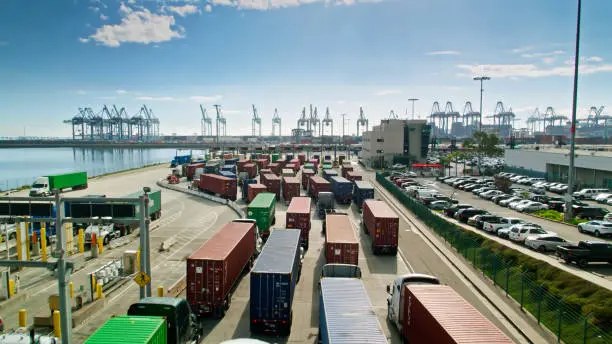
Streamlining Global Commerce: The Role of Freight Forwarding in Supply Chains
- Admin
Freight forwarding serves as the linchpin in the complex web of global supply chains, facilitating the seamless movement of goods across borders and continents. From coordinating transportation modes to navigating regulatory requirements, freight forwarders play a pivotal role in ensuring the efficient and timely delivery of cargo from origin to destination. In this article, we'll explore the significance of freight forwarding, delve into the services provided by freight forwarders, and discuss the benefits of partnering with these logistics experts in international trade.
The Significance of Freight Forwarding
Freight forwarding is essential for businesses engaged in international trade, providing expertise and services to navigate the complexities of global logistics. Freight forwarders act as intermediaries between shippers and carriers, orchestrating the transportation of goods via air, sea, road, or rail and managing documentation, customs clearance, and regulatory compliance. By leveraging their knowledge, networks, and resources, freight forwarders streamline supply chain operations, optimize transportation routes, and minimize costs for businesses of all sizes.
Services Provided by Freight Forwarders
Freight forwarders offer a comprehensive range of services to meet the diverse needs of their clients:
Transportation Management: Freight forwarders manage the transportation of goods from origin to destination, coordinating with carriers, arranging bookings, and optimizing transportation routes to ensure timely delivery and cost efficiency.
Customs Clearance: Freight forwarders handle customs clearance procedures, including documentation preparation, customs declarations, and compliance with import and export regulations. They ensure that shipments comply with customs requirements and facilitate smooth clearance through customs checkpoints.
Warehousing and Distribution: Freight forwarders provide warehousing and distribution services, including storage, inventory management, and order fulfillment. They maintain strategically located warehouses and distribution centers to optimize inventory levels and minimize transit times.
Insurance and Risk Management: Freight forwarders offer cargo insurance and risk management services to protect shipments against loss, damage, or theft during transit. They help clients assess insurance needs, arrange coverage, and manage claims in the event of unforeseen incidents.
Documentation and Documentation: Freight forwarders handle documentation and paperwork associated with international trade, including bills of lading, commercial invoices, packing lists, and certificates of origin. They ensure that documentation is accurate, complete, and compliant with regulatory requirements.
Benefits of Partnering with Freight Forwarders
Partnering with freight forwarders offers several benefits for businesses engaged in international trade:
Expertise and Knowledge: Freight forwarders possess expertise and knowledge of global logistics, transportation regulations, and trade procedures. They provide valuable insights and guidance to clients, helping them navigate complex supply chain challenges and optimize logistics operations.
Network and Resources: Freight forwarders have extensive networks of carriers, agents, and partners worldwide, enabling them to offer a wide range of transportation options and access to capacity in various modes of transport. They leverage their resources to negotiate favorable rates, secure space, and expedite shipments for clients.
Risk Mitigation: Freight forwarders help mitigate risks associated with international trade, including regulatory compliance, customs delays, and transportation disruptions. They proactively identify risks, implement contingency plans, and provide insurance coverage to protect clients' interests.
Cost Savings: Freight forwarders optimize transportation routes, consolidate shipments, and negotiate competitive rates with carriers, resulting in cost savings for clients. They help minimize transportation expenses, reduce inventory carrying costs, and improve supply chain efficiency.
Conclusion
Freight forwarding plays a vital role in facilitating global commerce, enabling businesses to navigate the complexities of international trade with confidence and efficiency. By providing a wide range of services, expertise, and resources, freight forwarders streamline supply chain operations, minimize risks, and drive cost savings for their clients. As businesses continue to expand their global footprint and navigate the challenges of a rapidly changing marketplace, partnering with freight forwarders becomes increasingly essential in unlocking opportunities and driving success in the global economy.
